|

| |

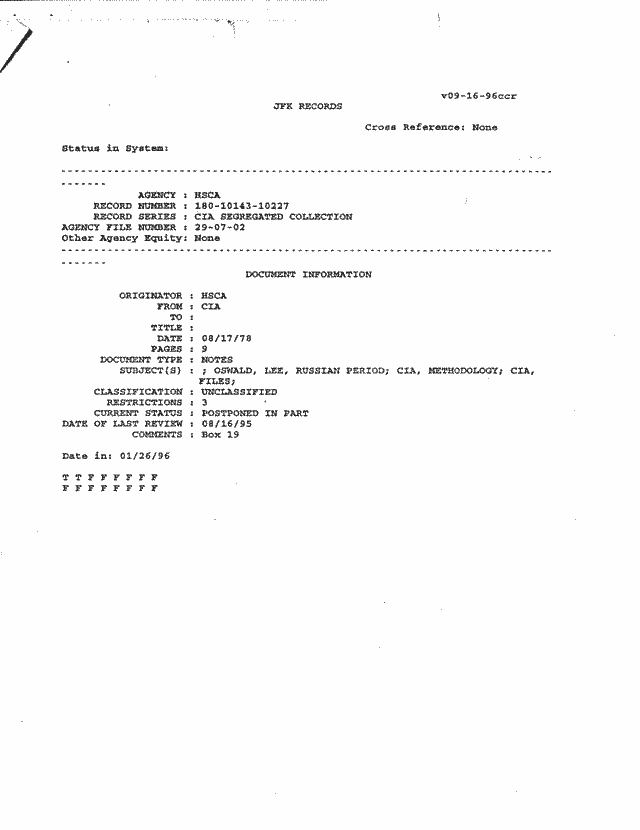
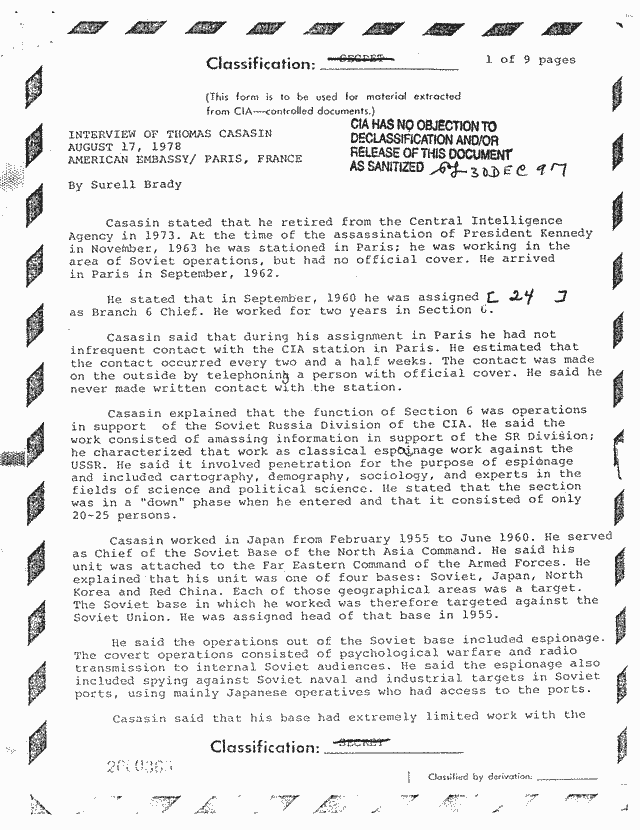
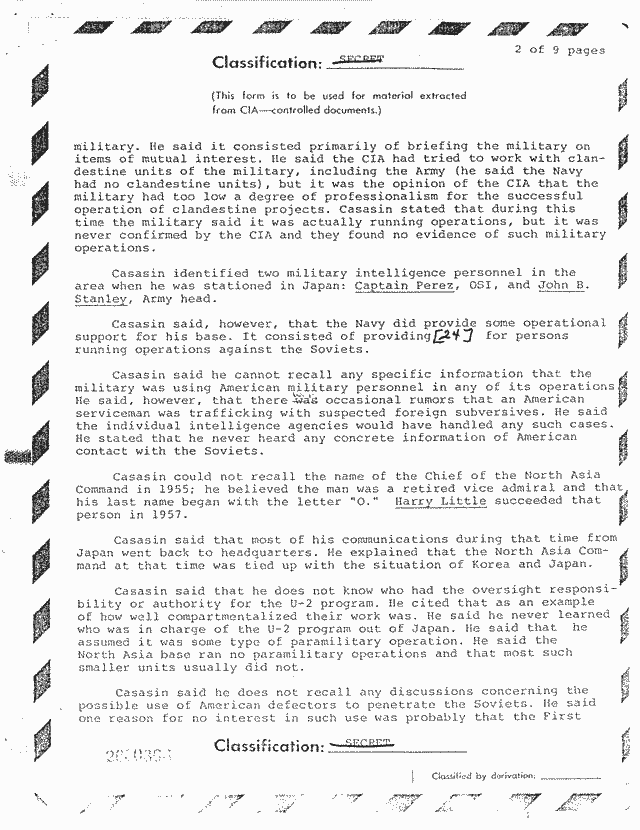
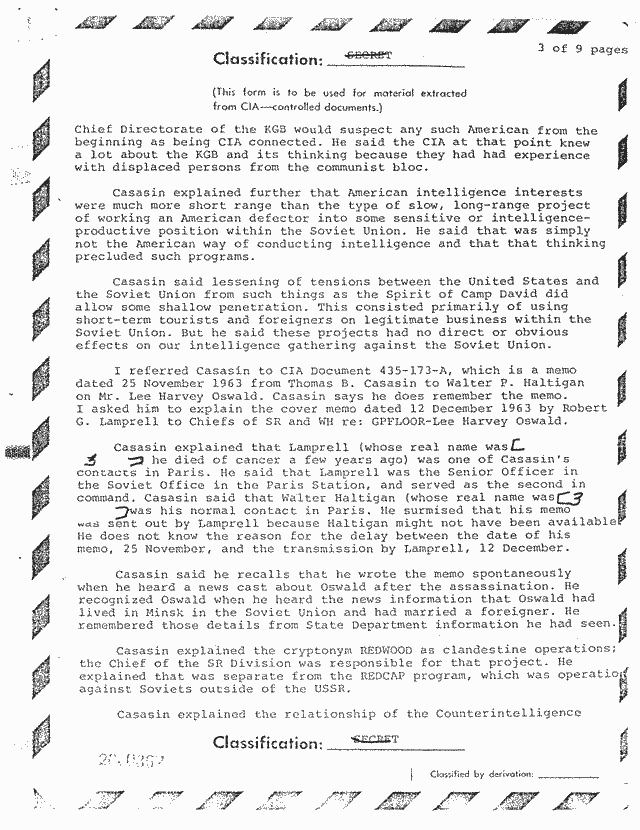
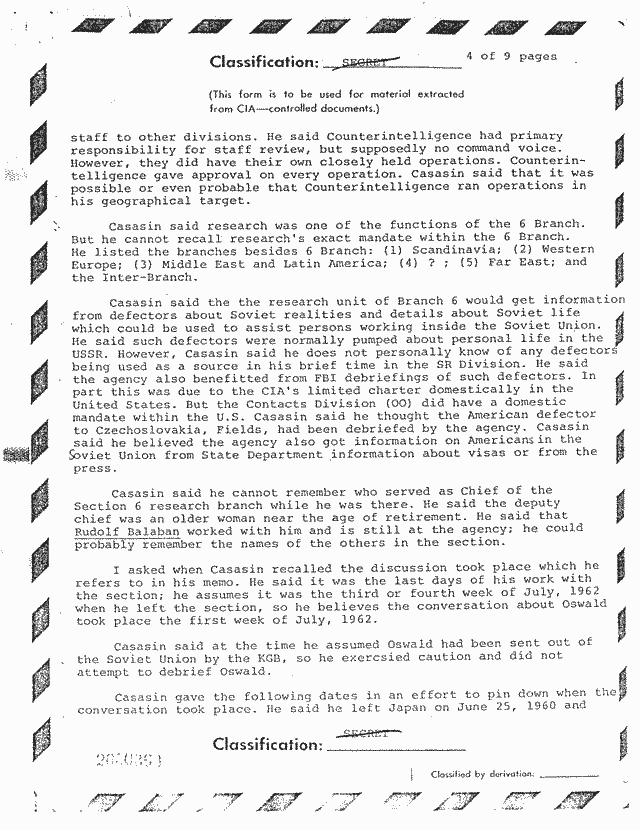
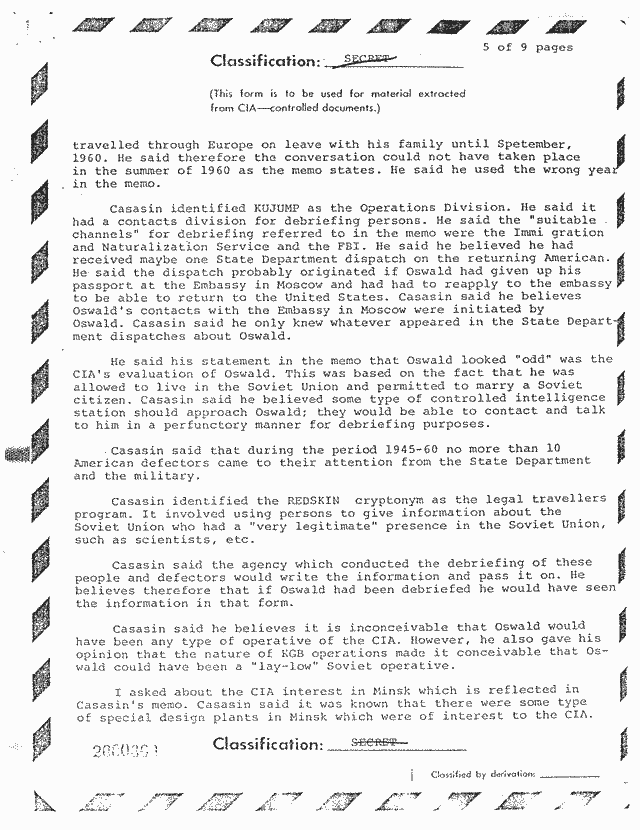
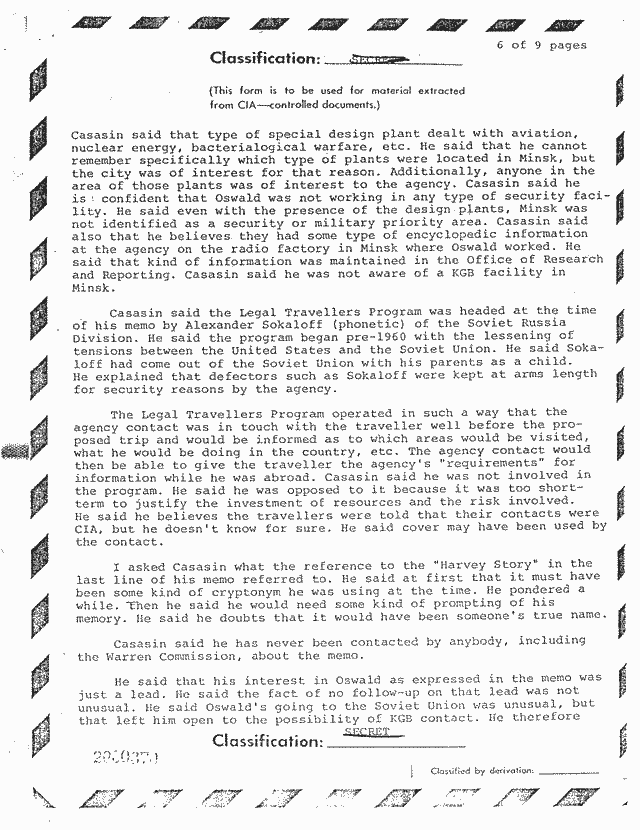
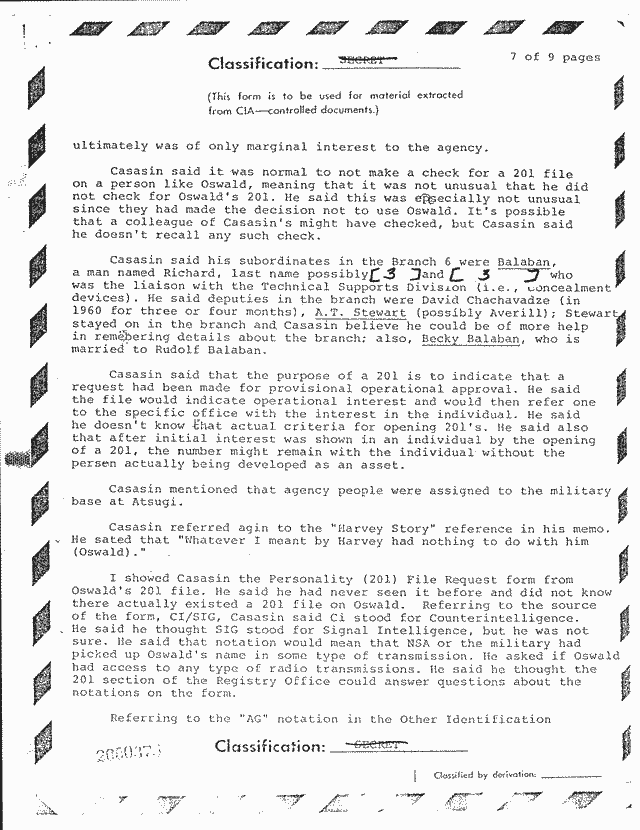
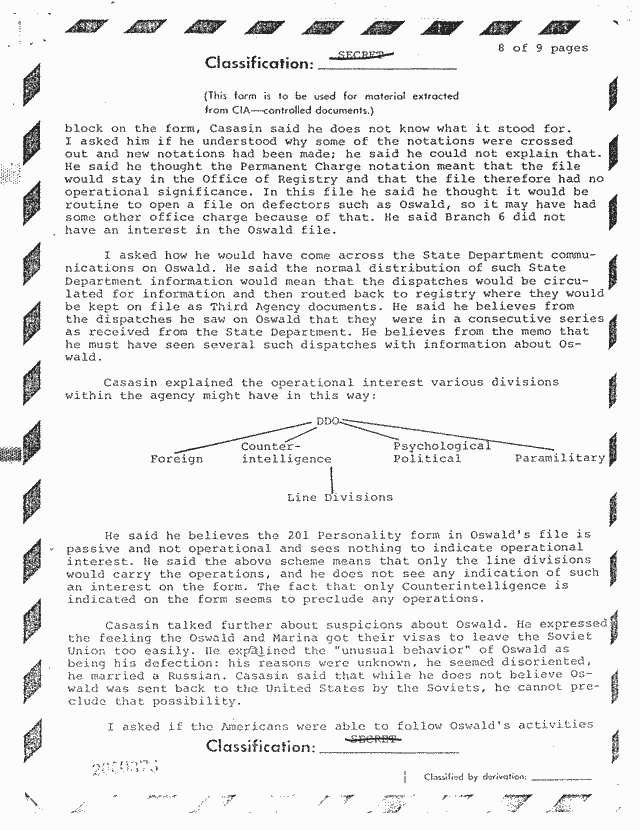
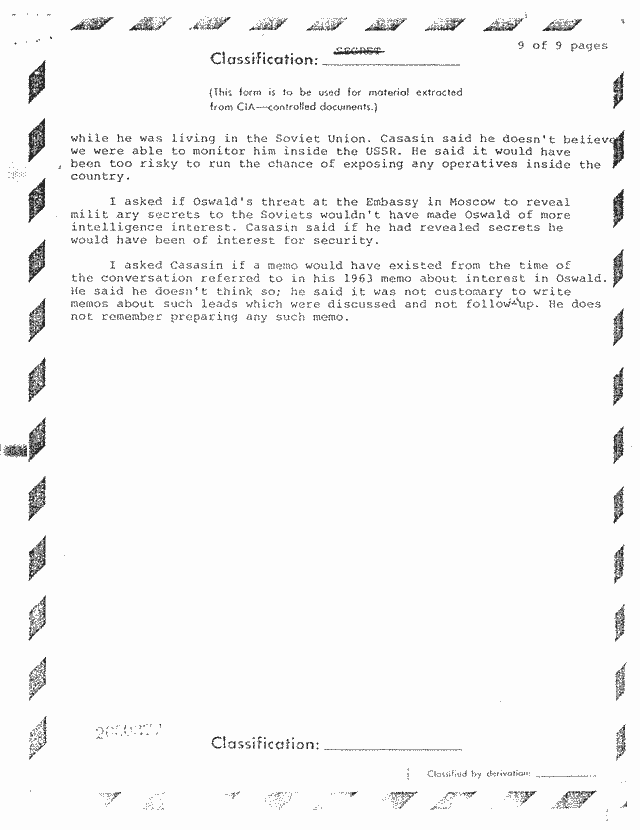
From: "Dave Yandell"
Subject: On the CIA False Defector program and the 11 assets in Garrison's Date:
Thursday, July 23, 2009 10:00 PM I took the liberty of contacting Professor Joan
Mellen myself. She was kind enough to offer a prompt and helpful reply.
Regarding the claim about CIA infiltration in Garrison's office, Martin is
misremembering. Professor Mellen informs me that the document listing the 11
assets is *only at CIA headquarters*. Her information came from HSCA staff
(including L. J. Delsa residing in the NOLA area) who reported having seen it at
CIA but were not allowed to copy it or take notes. This is why only a few of the
names were given. Professor Mellen herself *has not seen*, let alone possessed
this document. Regarding Robert Webster, Martin seems again to have seriously
misunderstood or misremembered. Professor Mellen's case for the false defector
claim is cumulative. There is no document in which the CIA acknowledges him as
being in a false defector program. As Professor Mellen said in her note to me,
"If you want CIA to spell out that he was a false defector, etc. you won't, I
don't believe[,] find that. WHy should they create such a document[?]" Professor
Mellen identified the document in question as a memo summarizing an interview,
found in Webster's CIA file, conducted by Eleanor Reed from the CIA's NYC
office, who Mellen believes also debriefed Oswald after his return from the
USSR. After reading the document, I am uncertain that it indicates involvement
in a false defector program rather than Reed interviewing a returned former
defector for the Contact Division to gather whatever information they can get.
Obviously, one needs further context established to come to a conclusion. She
referred me to a recent article of hers in which she cites this document in
whole. The following are excerpts from that very interesting article, including
the whole of Reed's interview summary memo. Best, Dave From Joan Mellen, “Who
Was Lee Harvey Oswald”, posted at http://www.maryferrell.org/wiki/index.php/Essay_-_Who_Was_Lee_Harvey_Oswald
The paper was originally presented on October 5, 2008. Its publication history
is given at the web link posted. Oswald’s appearance in the Soviet Union was as
a participant in the Agency’s “false defector” program, in which he was joined
by several other young men, whose files can be found at the National Archives.
There is no document that names a “false defector program,” but that does not
mean such a program did not exist, and there are copious files about various of
the participants. James Angleton ran that program. By putting the lie to the
possibility that the Soviet Union had sponsored the assassination, Nosenko’s
statements implicitly threatened to expose for whom Oswald was acting. Nosenko’s
life became a living hell after that. … The “Anderson” [DY: discovered to be a
code name for Eleanor Reed by Professor Mellen] who debriefed Oswald was,
strictly speaking not working directly for Robert T. Crowley, who headed up the
CIA Contact Division, Support Branch, the primary function of which was Counter
Intelligence. But she may have acted on his behalf in the debriefing. I recount
this information in my new little book, the prequel to “A Farewell To Justice,”
which I called “Jim Garrison: His Life and Times.” (It was published by
jfklancer). … Further corroboration that the CIA Soviet Russia Division, Soviet
Realities, SR6, in the person of Eleanor Reed, debriefed false defectors, is
contained in a document I have just discovered and that CIA released "as
sanitized" in 1998. The document resides in Robert Webster's file, is dated 17
August 1962, and is telling for several reasons; the cases of Oswald and Webster
are so similar that we can await, with some expectation, that the parallel
document of Oswald's debriefing by Reed (with perhaps her frequent debriefing
partner Rudy ("Valentino") Balaban), may well surface. This document
demonstrates beyond doubt Reed ("Anderson") was an SR6 debriefer; I copy it here
in full [ed. note: see 104-10182-10074]: TO: Eleanor Reed FROM: [03] IR/CR
SUBJECT: Appraisal of Interrogation 1. The eagerness of the subject to help and
his repeated expressions of regret for having neglected opportunities for more
detailed observations left me with mixed reactions. In my opinion this attitude
detracted from his otherwise seemingly genuine manner and at least for me it
“watered down” his attempt to generate a repentant impression. 2. The subject
readily answered questions and was extremely friendly during both periods of
interrogation. Plottings and data, however, by the subject on a blank town plan
left him for homework later proved disoriented. [sic]. The subject discovered
his error during our second meeting and volunteered corrections. 3. As far as
substantive intelligence gained is concerned, the interrogation provided data on
a plant previously described as possibly in the electronics business as a
probable radar storage and repair area. A hitherto unknown naval installation
was also identified and located in an area other than the one previously
assumed. 4. It can be said that if the subject’s bona fides are definitely
established, positive intelligence gathered from him is of real value. [03]
GROUP 1 Excluded from automatic downgrading and declassification.
|










